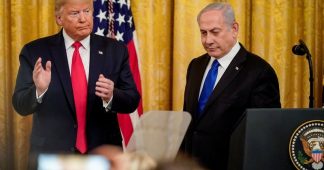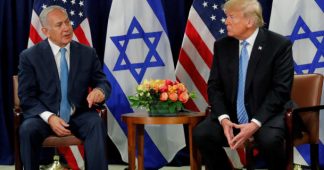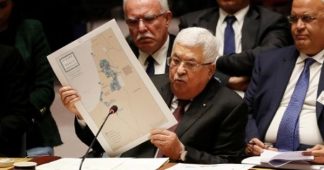The normalisation of relations between Israel and the UAE will help Donald Trump and Benjamin Netanyahu politically – but there are more important things happening
By Patrick Cockburn
Aug. 16, 2020
President Donald Trump is cock-a-hoop over the United Arab Emirates becoming the first Arab Gulf state to normalise its relations with Israel. He needs all the good news he can get in the months before the US presidential election.
“HUGE breakthrough today! Historic Peace Agreement between our two GREAT friends, Israel and the United Arab Emirates!” Trump tweeted. Israeli prime minister Binyamin Netanyahu claimed a triumph in establishing full diplomatic relations with an Arab state that had once been a vocal supporter of the Palestinians. The UAE, for its part, said it had averted Israeli annexation of parts of the West Bank, while the Palestinians denounced yet one more betrayal by their fellow Arabs.
Much of this is overblown. Trump and Netanyahu will exaggerate their achievement to strengthen their domestic political status. The UAE had long ago established security and commercial links with Israel and Netanyahu’s annexation of the West Bank had been postponed previously. Pious talk by the US and its western allies in pre-Trump days about fostering a non-existent peace process between Israel and the Palestinians, at the heart of which was an imaginary “two-state solution,” was always a device for ignoring the Palestinians while pretending that something was going on.
Yet there is a real historic change going on in the Middle East and north Africa, though it has nothing to do with the relationship between Israel and the Arabs. It is a transformation that has been speeded up by the coronavirus cataclysm and will radically change the politics of the Middle East.
The era characterised by the power of the oil states is ending. When the price of oil soared in the aftermath of the 1973 war, countries from Iran to Algeria, mostly though not exclusively Arab, enjoyed an extraordinary accretion of wealth. Their elites could buy everything from Leonardo da Vinci paintings to Park Lane hotels. Their rulers had the money to keep less well-funded governments in power or to put them out of business by funding their opponent.
It is this historic period that is now terminating and the change is likely to be permanent. Saudi Arabia and UAE still have big financial reserves, though these are not inexhaustible. Elsewhere the money is running out. The determining factor is that between 2012 and 2020 the oil revenues of the Arab producers fell from $1 trillion to $300bn, down by over two-thirds. Too much oil was being produced and too little was consumed pre-coronavirus and, on top of this, there is a shift away from fossil fuels. Cuts in output by Opec might go some way to raising the oil price, but it will not be enough to preserve a crumbling status quo.
Read more at https://www.independent.co.uk/voices/trump-israel-uae-palestinians-middle-east-oil-gulf-a9670926.html











